-
About
- About Listly
- Community & Support
- Howto
- Chrome Extension
- Bookmarklet
- WordPress Plugin
- Listly Premium
- Privacy
- Terms
- DMCA Copyright
- © 2010-2025 Boomy Labs


 akanksha-varia
akanksha-varia
Listly by akanksha-varia
Agatha Mary Clarissa Miller was born on 15 September 1890, into a wealthy upper middle-class family in Ashfield, Torquay, Devon. Christie had long been a fan of detective novels and enjoyed mysteries written by Sir Arthur Conan Doyle an Wilkie Collins. She soon explored her passion towards writing mysteries and started with writing her own, The Mysterious Affair at Styles. Here is a list of top 10 books that you would surely be keen on reading with links to shop them too.
Source: http://www.agathachristie.com/

The house guests at Styles seemed perfectly pleasant to Captain Hastings; there was his own daughter Judith, an inoffensive ornithologist called Norton, dashing Mr Allerton, brittle Miss Cole, Doctor Franklin and his fragile wife Barbara , Nurse Craven, Colonel Luttrell and his charming wife, Daisy, and the charismatic Boyd-Carrington. So Hastings was shocked to learn from Hercule Poirot's declaration that one of them was a five-times murderer. True, the ageing detective was crippled with arthritis, but had his deductive instincts finally deserted him?
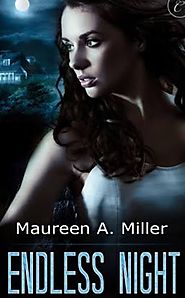
Strapped by a chauffeur's wages, Michael Rogers' want of a better life seems out of reach. Especially elusive is a magnificent piece of property in Kingston Bishop--unil a chance meeting with a beautiful heiress makes his dreams possible. Marrying her is the first step. Building the perfect home is the next. Unfortunately, Michael ignored the local warnings about the deadly curse buried in the tract of land, and living out his dreams may exact a higher price than he ever imagined. Praised as one of Agatha Christie's most unusual forays into gothic, psychological suspense, this novel of fate, chance, and the nature of evil was a personal favorite of the author's as well.
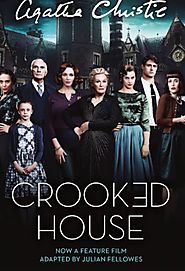
In the sprawling, half-timbered mansion in the affluent suburb of Swinly Dean, Aristide Leonides lies dead from barbiturate poisoning. An accident? Not likely. In fact, suspicion has already fallen on his luscious widow, a cunning beauty fifty years his junior, set to inherit a sizeable fortune, and rumored to be carrying on with a strapping young tutor comfortably ensconced in the family estate. But criminologist Charles Hayward is casting his own doubts on the innocence of the entire Leonides brood. He knows them intimately. And he's certain that in a crooked house such as Three Gables, no one's on the level...
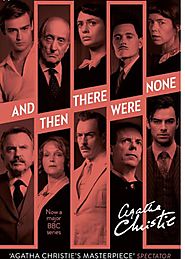
First, there were ten - a curious assortment of strangers summoned as weekend guests to a private island off the coast of Devon. Their host, an eccentric millionaire unknown to all of them, is nowhere to be found. All that the guests have in common is a wicked past they're unwilling to reveal - and a secret that will seal their fate. For each has been marked for murder. One by one they fall prey. Before the weekend is out, there will be none. And only the dead are above suspicion.

Just after midnight, the famous Orient Express is stopped in its tracks by a snowdrift. By morning, the millionaire Samuel Ratchett lies dead in his compartment, stabbed a dozen times, his door locked from the inside. One of his fellow passengers must be the murderer.
Isolated by the storm and with a killer in their midst, detective Hercule Poirot must find the killer amongst a dozen of the dead man's enemies, before the murderer decides to strike again...
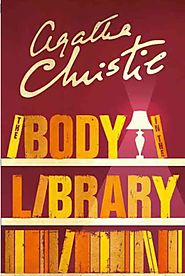
Colonel Bantry has found the strangled body of an exotic blonde bombshell lying on his library hearth - and the neighbors are beginning to talk! When Miss Marple takes an interest, though, things begin to move along nicely, and its all far more convoluted - and sordid - than the genteel Bantrys could have imagined.
A curmudgeonly financier, his self-absorbed adult children, a couple of pragmatic and clever hotel workers, tons of money and influence, a wild local lad, some smitten girls, the film business, mix into a classic Christie plot filled with twists, turns, and double-backs galore. Plus the glorious settings of A Great House, a fancy Hotel, and an excessively genteel little village, and let's not forget Miss Marple...
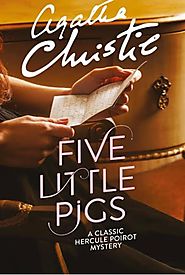
It was an open and shut case. All the evidence said Caroline Crale poisoned her philandering husband, a brilliant painter. She was quickly and easily convicted and sentenced to life in prison.
Now, sixteen years later, in a posthumous letter, Mrs. Crale has assured her grown daughter that she was innocent. But instead of setting the young woman's mind at ease, the letter only raises disquieting questions. Did Caroline indeed write the truth? And if she didn't kill her husband, who did?
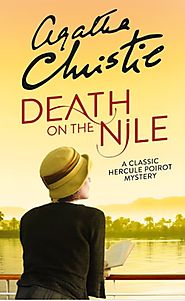
Death on the Nile is a pre-Second World War novel, first published in 1937. It shows Agatha Christie’s interest in Egypt and archaeology and also reflects much of the flavour and social nuances of the pre-war period. Although the novel is set in Egypt, an exotic location, it is essentially a ‘locked room mystery’, as the characters are passengers on the river-steamer SS Karnak, cruising on the Nile. Amongst them is the famous Hercule Poirot, a short man dressed in a white silk suit, a panama hat and carrying a highly ornamental fly whisk with a sham amber handle – a funny little man
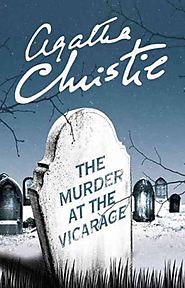
Murder at the Vicarage marks the debut of Agatha Christie’s unflappable and much beloved female detective, Miss Jane Marple. With her gift for sniffing out the malevolent side of human nature, Miss Marple is led on her first case to a crime scene at the local vicarage. Colonel Protheroe, the magistrate whom everyone in town hates, has been shot through the head. No one heard the shot. There are no leads. Yet, everyone surrounding the vicarage seems to have a reason to want the Colonel dead. It is a race against the clock as Miss Marple sets out on the twisted trail of the mysterious killer without so much as a bit of help from the local police.
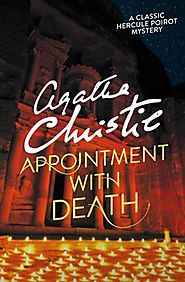
Among the towering red cliffs of Petra sits the corpse of Mrs Boynton, a tiny puncture mark on her wrist the only sign of what has killed her. Hercule Poirot has only 24 hours to solve the mystery.
A tyrannical old martinet, a mental sadist and the incarnation of evil. These were only three of the character descriptions levelled at Mrs. Boynton, the matriarch who kept her family totally dependent on her. But did she really deserve to die on the excursion to beautiful Petra? Hercule Poirot hears about the murder and feels compelled to investigate-despite the family's request not to do so. Do they have something to hide and, if so, can they keep it hidden from this master sleuth?
